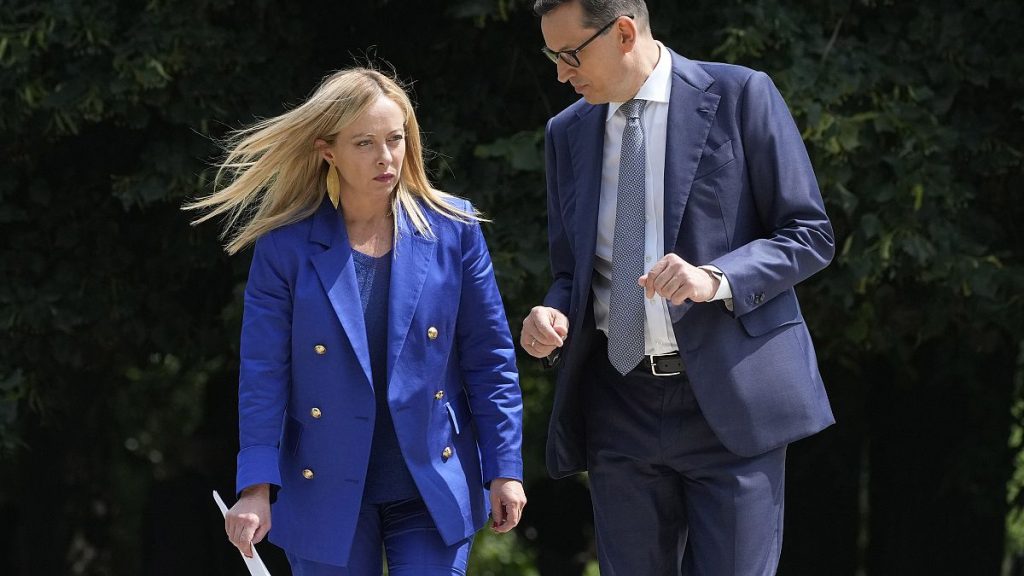Mateusz Morawiecki, the incoming president of the European Conservatives and Reformists (ECR) group in the European Parliament, has invoked the imagery of J.R.R. Tolkien’s “Lord of the Rings” to describe the political landscape he perceives, both within and outside the European Union. In a symbolic gesture, he gifted Italian Prime Minister Giorgia Meloni, the outgoing ECR president, a copy of Tolkien’s book inscribed with a call to fight evil and defeat “Mordor.” This metaphorical language has sparked interest and raised questions about what Morawiecki considers to be the real-world equivalent of Tolkien’s fictional evil empire.
When pressed by Euronews to clarify his use of the term “Mordor,” Morawiecki identified modern-day Russia under President Vladimir Putin as a primary example. He pointed to Russia’s actions and policies as embodying the characteristics of a malevolent force. However, Morawiecki’s definition of “Mordor” extended beyond the geopolitical realm of Russia and encompassed certain forces within the European Union itself. He criticized what he sees as destructive elements working against national sovereignty and pushing for centralized power within the bloc. While stopping short of labeling these internal forces as “Mordor,” he expressed reservations about their constructive contribution to the EU’s future. This criticism appears to be directed at proposals that would grant more power to the EU over individual member states.
Morawiecki’s comments reflect a broader political context within the European Parliament and the EU itself. He highlighted the emergence of a new coalition within the Parliament, comprised of the ECR, the European People’s Party (EPP), and the Patriots for Europe. This coalition, he noted, differs from the one that voted the current European Commission into office and represents a shift in the balance of power. He emphasized the ability of this new coalition to influence decision-making on significant European issues, suggesting a potential realignment of political forces within the EU’s legislative body. This new alignment underscores the dynamic and evolving nature of political alliances within the European Parliament and their potential impact on policy decisions.
Furthermore, Morawiecki addressed the political divisions within his own country, Poland. He acknowledged the deep partisan divide between his Law and Justice party and the opposing Civic Platform, led by former Prime Minister Donald Tusk. While expressing a willingness to cooperate even with perceived adversaries for the benefit of Poland and the EU, Morawiecki criticized the current Polish government’s approach to European affairs, accusing them of lacking a constructive vision for the EU’s future. This internal political tension in Poland adds another layer of complexity to Morawiecki’s pronouncements on the European stage, highlighting the interplay between domestic politics and the broader EU context.
Morawiecki’s invocation of “Mordor” and his critique of both external and internal forces he views as detrimental to the EU reflect his particular political perspective and priorities. His willingness to cooperate with those he disagrees with, while simultaneously criticizing their approach, illustrates the complex and often contradictory nature of political alliances and negotiations. His comments offer insights into the ongoing power dynamics within the European Parliament and the challenges of navigating diverse political agendas within the EU.
The use of literary metaphors in political discourse can be a powerful rhetorical tool, but it also requires careful interpretation. While Morawiecki’s reference to “Mordor” serves to highlight his concerns about certain political actors and their potential impact on the European Union, it also underscores the importance of understanding the context and motivations behind such symbolic language. His comments should be viewed within the larger framework of the ongoing political debates within the EU and the evolving relationships between member states and the broader European project.

